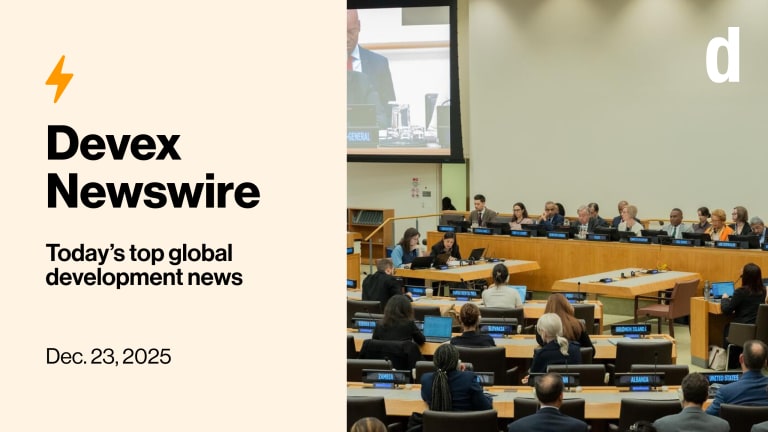Ghana and Georgia have qualified for second compacts with the Millennium Challenge Corp., while Cape Verde, Indonesia and Zambia have been allowed to continue developing compacts in fiscal 2011. The agency’s board has also approved a five-year, USD350.7 million aid program for Malawi but has reportedly refused to grant a second compact with Honduras.
Meantime, U.S. Agency for International Development Administrator Rajiv Shah has announced procurement reforms and a new grant to help engage non-governmental organizations in implementing Feed the Future, the U.S. government’s flagship program for promoting food security. The U.S. is also offering USD190 million for flood victims in Pakistan. The amount will support a Pakistani government scheme that offers cash compensation of USD1,000 per family.
Days before Haiti marked the first anniversary of the massive earthquake that killed 200,000 people and displaced some 1.3 million others, the United Nations and other donors have launched a USD200 million environmental recovery program in the country’s southwest. The British government and Australian aid groups, meanwhile, have expressed readiness to support humanitarian efforts for Sudan, which held a referendum on Jan. 9 to decide the south’s secession bid.
Despite the financial crisis in Europe, Portugal’s official development assistance for this year will be at the same level as that in 2010. Meanwhile, the Japan International Cooperation Agency is in talks with its counterparts in China and South Korea to boost cooperation in foreign aid projects.
Appointments:
Nicholas Westcott – European External Action Service’s managing director for Africa.
Thomas Nides – sworn in as the U.S. State Department’s deputy secretary for management and resources.
Paige Alexander – sworn in as assistant administrator for Europe and Eurasia at the U.S. Agency for International Development.








